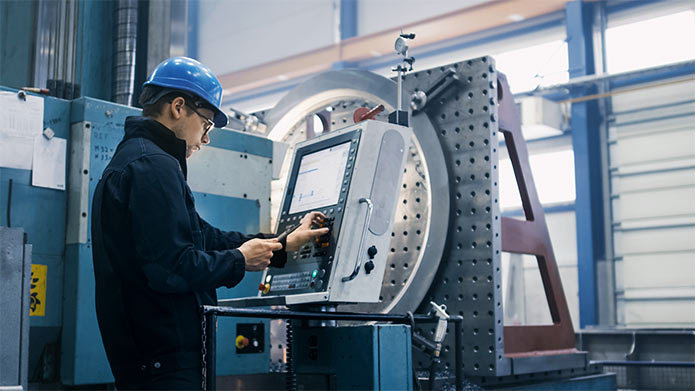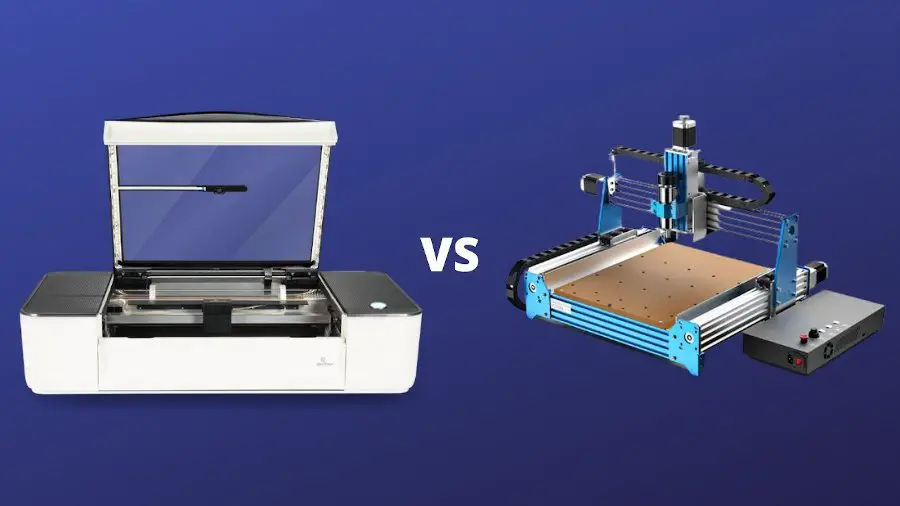Table of Contents
CNC machining has revolutionized the manufacturing industry with its accuracy, speed, and versatility. However, the question remains, is CNC machining profitable? This is a crucial question for businesses looking to invest in this technology, and in this article, we will explore the factors that determine the profitability of CNC machining. From the cost of the machinery to the labor costs and the market demand, we will discuss all the variables that can affect your bottom line. So, whether you are an entrepreneur or a manufacturer, keep reading to find out if CNC machining can increase your profits.
Yes, CNC machining can be profitable for businesses that utilize it effectively. CNC machines offer precision and consistency, which can increase production and reduce waste. Additionally, the ability to automate processes can lead to cost savings in labor and materials. However, the initial investment in CNC machines can be expensive, so careful consideration should be taken before making a decision.
Is CNC Machining Profitable?
CNC machining has become one of the most popular manufacturing methods in recent years. It is a process of using computer-aided design (CAD) and computer-aided manufacturing (CAM) software to create precise and intricate parts. Many people are turning to CNC machining for its accuracy, speed, and versatility. But is CNC machining really profitable? Let’s take a closer look.
1. Cost of CNC Machining
One of the most significant factors that affect the profitability of CNC machining is the cost. CNC machines are expensive, and the cost of the machine varies depending on its size, complexity, and features. Additionally, CNC machines require specialized software, tools, and operators, which can add to the cost. However, the cost of CNC machining has decreased in recent years, making it more accessible to small and medium-sized businesses.
When it comes to CNC machining, the cost of materials is also a factor to consider. CNC machines can work with a wide variety of materials, including metals, plastics, and composites. However, the cost of these materials can vary greatly, and some materials may require specialized equipment or tooling, which can add to the cost.
2. Efficiency and Speed
One of the main advantages of CNC machining is its efficiency and speed. CNC machines can produce parts in large quantities and at a high rate of speed. Additionally, CNC machines can work continuously, 24 hours a day, seven days a week, which can increase productivity and reduce lead times. This efficiency and speed can result in lower costs and higher profits.
3. Precision and Accuracy
CNC machines are known for their precision and accuracy. CNC machines can produce parts with tolerances as small as a few thousandths of an inch. This precision and accuracy can reduce waste and scrap, resulting in cost savings and higher profits.
4. Versatility
CNC machines are versatile and can produce a wide range of parts with varying levels of complexity. CNC machines can work with a variety of materials, including metals, plastics, and composites. Additionally, CNC machines can produce parts with intricate shapes and features that would be impossible to create using traditional manufacturing methods.
5. Customization
CNC machines can produce customized parts quickly and efficiently. This customization can be a significant advantage for businesses that need to produce parts for specific applications or customers. Customization can also increase customer satisfaction and loyalty, resulting in repeat business and higher profits.
6. Maintenance Costs
CNC machines require regular maintenance to ensure they are operating at optimal levels. The cost of maintenance can vary depending on the machine’s age, complexity, and usage. However, regular maintenance can prevent breakdowns and downtime, resulting in cost savings and increased profitability.
7. Training and Expertise
CNC machines require specialized training and expertise to operate effectively. This training can be costly and time-consuming, and finding skilled operators can be challenging. However, investing in training and expertise can result in increased productivity, reduced downtime, and higher profits.
8. Competition
CNC machining is a competitive industry, and businesses must be able to offer competitive pricing and quality to remain profitable. Additionally, businesses must be able to adapt to changes in the market and technology to remain competitive.
9. Benefits of CNC Machining
There are numerous benefits to using CNC machining, including:
- Reduced lead times
- Lower costs
- Higher accuracy and precision
- Increased productivity
- Customization
- Ability to work with a wide range of materials
10. CNC Machining Vs. Other Manufacturing Methods
CNC machining has several advantages over traditional manufacturing methods, including:
| CNC Machining | Traditional Manufacturing Methods |
|---|---|
| High precision and accuracy | Lower precision and accuracy |
| Customization | Less customization |
| Efficiency and speed | Slower production times |
| Lower costs | Higher costs |
In conclusion, CNC machining can be profitable, but it depends on several factors, including the cost of the machine, efficiency and speed, precision and accuracy, versatility, customization, maintenance costs, training and expertise, and competition. By weighing these factors, businesses can determine if CNC machining is the right choice for their manufacturing needs.
Frequently Asked Questions
Here are some common questions about CNC machining profitability:
What is CNC Machining?
CNC machining is a manufacturing process that uses computer-controlled machines to create parts and products with precision and accuracy. The process involves cutting and shaping raw materials such as metal, plastic, or wood using specialized tools that are controlled by a computer program. CNC machines are used in a variety of industries, including aerospace, automotive, and medical.
CNC machining is an efficient and cost-effective way to produce high-quality parts and products. It allows for greater precision and accuracy than traditional machining methods and can be used to create complex shapes and designs. Additionally, CNC machines can operate continuously and require minimal human intervention, which can help reduce labor costs.
Is CNC Machining Profitable?
Yes, CNC machining can be a profitable business. However, profitability depends on various factors, such as the type of products being produced, the market demand for those products, and the cost of production. CNC machining can be a profitable business if the company can produce high-quality parts and products efficiently and at a competitive price.
To increase profitability, CNC machining companies can invest in newer, more advanced machines and technology. These machines can increase production capacity, improve efficiency, and reduce production costs. Additionally, companies can focus on producing high-value products that have a strong market demand.
What are the Benefits of CNC Machining?
CNC machining offers several benefits over traditional machining methods. First and foremost, CNC machines are highly accurate and precise, which allows for greater consistency and quality in the parts and products being produced. Additionally, CNC machines can be programmed to produce complex shapes and designs, which is difficult or impossible with traditional machining methods.
CNC machining is also highly automated, which means that it requires minimal human intervention. This can help reduce labor costs and increase efficiency. Finally, CNC machines can operate continuously, which allows for high-volume production runs and faster turnaround times.
What are the Key Factors that Affect CNC Machining Profitability?
The key factors that affect CNC machining profitability include the cost of raw materials, the cost of labor, the cost of equipment and maintenance, and the market demand for the products being produced. To maximize profitability, CNC machining companies need to optimize their production processes to reduce costs and increase efficiency.
Additionally, companies need to focus on producing high-value products that have a strong market demand. This can be achieved by investing in research and development to create innovative products, or by focusing on niche markets where there is less competition.
What are Some Strategies for Improving CNC Machining Profitability?
There are several strategies that CNC machining companies can use to improve profitability. First, they can invest in newer, more advanced machines and technology that can increase production capacity, improve efficiency, and reduce production costs. Additionally, companies can optimize their production processes to reduce waste, increase efficiency, and improve quality.
Another strategy is to focus on producing high-value products that have a strong market demand. This can be achieved by investing in research and development to create innovative products, or by focusing on niche markets where there is less competition. Finally, companies can explore new markets and expand their customer base to increase sales and revenue.
In conclusion, CNC machining can be a profitable venture if done right. By adopting cost-effective measures such as optimizing tool paths, reducing material waste, and investing in modern equipment, businesses can maximize their profits. It is important to note that profitability is not guaranteed, and there are several factors that can impact the success of a CNC machining business.
However, with the right approach, CNC machining can offer a significant return on investment. By staying up-to-date with the latest technology and trends in the industry, businesses can stay ahead of the competition and attract more customers. Additionally, by providing exceptional customer service and offering competitive pricing, businesses can build a loyal customer base and increase their profitability over time.
Overall, CNC machining has the potential to be a profitable business venture, but it requires careful planning and execution. By taking a strategic approach and focusing on efficiency, quality, and customer satisfaction, businesses can maximize their profits and achieve long-term success in this competitive industry.
Request a quote today!
[contact-form-7 id="1578" title="Contact form"]
Please compress the file into a ZIP or RAR file before uploading. Alternatively, send through your RFQ by email.
enquires@unitymanufacture.com





